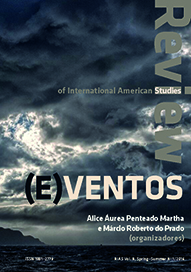Nos Mares Das Traduçőes, Nos Mares Das Traiçőes: Leminski, os diálogos com a cultura estrangeira e questőes de poética e identidade
In the seas of translations, in the seas of betrayals: Leminski, the dialogues with a foreign culture and questions about poetics and identity
Author(s): Márcio Roberto do PradoSubject(s): Anthropology, Social Sciences, Language and Literature Studies, Studies of Literature, Comparative Study of Literature, Other Language Literature, Cultural Anthropology / Ethnology, Culture and social structure , Translation Studies
Published by: Wydawnictwo Uniwersytetu Śląskiego
Keywords: Concrete poetry; translation; Brazilian culture; Paulo Leminski
Summary/Abstract: When we think of Paulo Leminiski (1944–1989) and of his artistic ‘signature’, it is his peculiar relation with the foreign languages and cultures that comes to the fore as one of the most important aspects of his work: an aspect determining his uniqueness. It manifests itself in his originally conceived translations and in his literary work in general—and, arguably, is traceable back to the wide cultural dialogue, to which Leminski was profoundly committed. His participation in that dialogue would both determine the directions of his development and open new possibilities affecting his artistic production, thus contributing to the establishment of his literary persona that would often, dangerously and provocatively, be confused with his empirical self. This paper aims to offer a panoramic view of some of Leminski’s works in the context of his dialogue with Brazilian Concrete Poetry in order to shed some light upon his lifelong project in terms of his intellectual propositions and their consequences, or, less specifically, his expressive experiences collected throughout his career. In conclusion, the argument underlying this article leads to the (re)affirmation of Leminski’s living art, that, through translations/betrayals of the Other and for the Other, grants one an insight into the nature of Brazilian literature (and especially Brazilian lyrical poetry) of the first half of the 20th century. Leminski’s work provides his reader with an ideal point of departure to understand the cultural legacy of Brazil, whose turbulent history offers lessons that never lose validity.
Journal: Review of International American Studies
- Issue Year: 9/2016
- Issue No: 1
- Page Range: 99-113
- Page Count: 15
- Language: Portuguese

